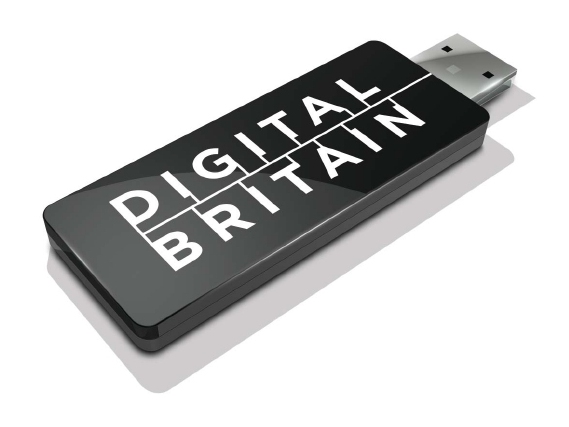Digital Britain: The Good, The Bad and The WTF?
The Digital Britain interim report translated into plain English

Lord Carter's Digital Britain report isn't an easy read, not least because some of it appears to have been written by aliens.
Cut through the bureaucratese, though, and there are some interesting plans up the Government's sleeve.
Some of them are good, some of them are bad, and some are just weird.
Here's what you need to know.
The Good
Broadband for all
In Digital Britain, everybody who wants broadband will be able to get it. The plan is to expand the Universal Service Obligation, which currently compels BT to provide a phone service to everybody at a reasonable price, to include broadband at speeds up to 2Mbps. That's not necessarily ADSL or cable, though. The report specifically mentions mobile broadband as one solution for remote areas.
More mobile spectrum
The report proposes providing a wider radio spectrum to mobile phone companies so they can deliver better and more widespread 3G services. That's excellent news for anybody who lives in the sticks. Someone in our town managed to get a 3G connection once - we burned them as a witch.
Get daily insight, inspiration and deals in your inbox
Sign up for breaking news, reviews, opinion, top tech deals, and more.
No more 'three strikes and you're out'
Much to the annoyance of the music industry, we're sure, the proposed 'three strikes and you're out' plan to ban persistent illegal downloaders from the net has been dumped.
Nothing's carved in stone
This is an interim report, not the final thing - that's due in the summer. The current document is a request for feedback, so email digitalbritain@berr.gsi.gov.uk to have your say on the proposals. The feedback period ends on 12 March.
The Bad
Universal? Yes. Fast? No.
Broadband for everybody at 2Mbs might not be up to the job in 2012, which is when the proposed Universal Service changes will take effect. Three years is a long time: the BBC's iPlayer was only launched two years ago and look how things have changed since.
No high-speed help
While the report notes the importance of high-speed, next generation access (NGA) at speeds in excess of 20Mbps, it doesn't propose doing much about it. Essentially, the government is hoping that BT and Virgin Media will deliver super-fast broadband without any official intervention. In the current financial climate - BT just unveiled very disappointing financial results - that seems awfully optimistic.
Boo to net neutrality
Bad news for anyone worried about a two-tier Internet. "The Government has yet to see a case for legislation in favour of net neutrality," says the report. "Traffic management will not be prevented."
ISPs as data spies
Digital Britain confirms that the government plans file-sharing legislation. ISPs will notify alleged infringers that they're being naughty and if they persist then their ISP may spy on them. "We also intend to require ISPs to collect anonymised information on serious repeat infringers... this should provide a good evidence base, to make it significantly easier for rights-holders to take targeted legal action against the most significant infringers."
The WTF?
There may be a broadband tax. Or there may not be. Who knows?
Action 12 in the Digital Britain report has caused a mass outbreak of head-scratching. Anybody care to translate this? "Before the full Digital Britain report is published we will explore with both distributors and rights-holders their willingness to fund, through a modest and proportionate contribution, such a new approach to civil enforcement of copyright within the legal frameworks applying to electronic commerce, copyright, data protection and privacy to facilitate and co-ordinate an industry response to this challenge. It will be important to ensure that this approach covers the need for innovative legitimate services to meet consumer demand, and education and information activity to educate consumers in fair and appropriate uses of copyrighted material as well as enforcement and prevention work."
If you take it together with Action 11, which talks about "the potential for a Rights Agency" to act as a middleman between copyright owners and ISPs empowered to "act to ensure that enforcement measures are effective and proportionate", then Action 12 could (and probably does) mean that ISPs will pay a levy in order to fund a mysterious new organisation. According to the report that organisation will fight piracy, educate everybody about the importance of copyright and develop new and exciting ways for DRM to annoy us.
Then again, it could mean that the record labels will be asked to fund a retirement home for monkeys. Who knows?
Writer, broadcaster, musician and kitchen gadget obsessive Carrie Marshall has been writing about tech since 1998, contributing sage advice and odd opinions to all kinds of magazines and websites as well as writing more than a dozen books. Her memoir, Carrie Kills A Man, is on sale now and her next book, about pop music, is out in 2025. She is the singer in Glaswegian rock band Unquiet Mind.
